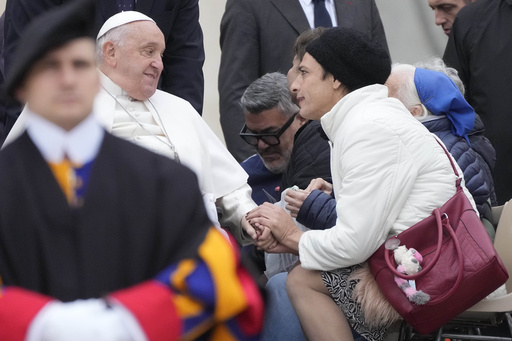
ROME — Pope Francis has taken steps to address the Vatican’s financial troubles, announcing on Thursday that urgent reforms are needed for the city-state’s pension fund to ensure it meets future obligations. This comes in the wake of a series of cost-cutting measures that he has implemented in response to ongoing budget deficits exacerbated by years of mismanagement and the financial fallout from the COVID-19 pandemic, particularly its impact on the Vatican Museums, a significant revenue source.
In a communication to senior Vatican officials, Francis expressed his concerns about the pension fund’s viability and appointed Cardinal Kevin Farrell as its special administrator, emphasizing the necessity for prompt and effective intervention. The letter highlighted the alarming financial state of the Vatican, where cost-saving initiatives have involved reducing the salaries of cardinals by 10%, halting some bonuses based on seniority, and imposing market rates for certain residential rents.
The pension fund has long been under scrutiny, and in his latest correspondence, Francis pointed out a troubling analysis that suggests a serious imbalance is widening within the fund, indicating the current system may not fulfill its pension obligations to future generations without significant changes. He described the need for action, stating, “In concrete terms, this means that the current system is unable to guarantee in the medium term the fulfillment of the pension obligation for future generations.”
Worries among the lay employees of the Vatican have surfaced following Francis’ remarks, as they fear their salaries may be further affected by additional budget constraints. The Association of Lay Vatican Employees, akin to a labor union, has publicly voiced its anxiety over the potential impact on their pensions and called for transparent disclosures surrounding the pension fund’s financials. The association pointed out that lay employees have in good faith endured cutbacks already without salary adjustments aligned with inflation, and it seeks to ensure their voices are heard regarding ongoing budget discussions.
The Vatican employs approximately 4,500 individuals, with about 3,100 in the Holy See’s bureaucracy and the remainder working in various capacities within the Vatican city state, including its museums. Despite the typically lower pay scales at the Vatican, workers appreciate certain benefits, such as tax exemptions, access to private healthcare, and subsidized living conditions. Yet, many employees increasingly express their dissatisfaction due to the rising pressures of austerity measures and excessive workloads. Earlier this year, a group of 49 employees from the Vatican Museums sought legal recourse through a class-action lawsuit addressing their grievances against labor conditions.
The financial statement for the Holy See showed a profit of 45.9 million euros at the end of 2023, a figure that stands at odds with previous assessments. Just in 2015, officials had confidently asserted the pension fund’s robust financial health, predicting it would exceed 500 million euros by year-end, having risen from a mere 5 million euros in 1993.
Cardinal Farrell, originally from Ireland and now a U.S. citizen, has taken on significant financial responsibilities within the Vatican, managing sensitive administrative tasks under the Pope’s guidance. He is not only the camerlengo, responsible for leading the Holy See following a papal death, but also presides over the investment committee that evaluates crucial financial issues for the church, enhancing his role in shaping the Vatican’s future fiscal policies.
